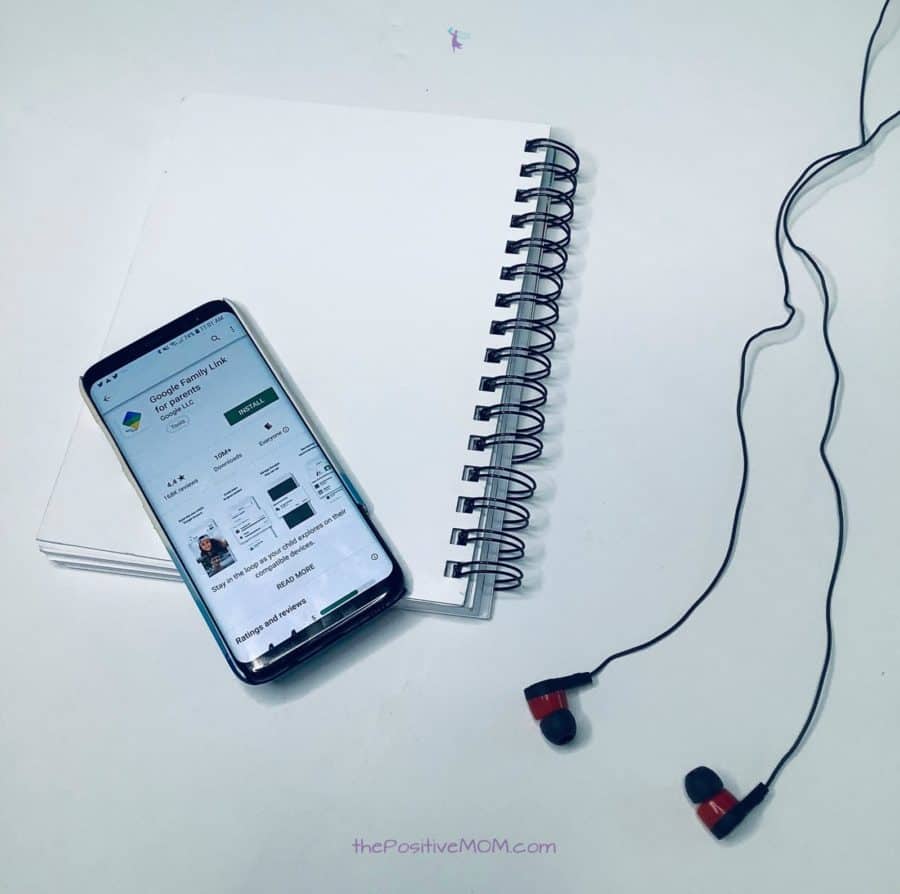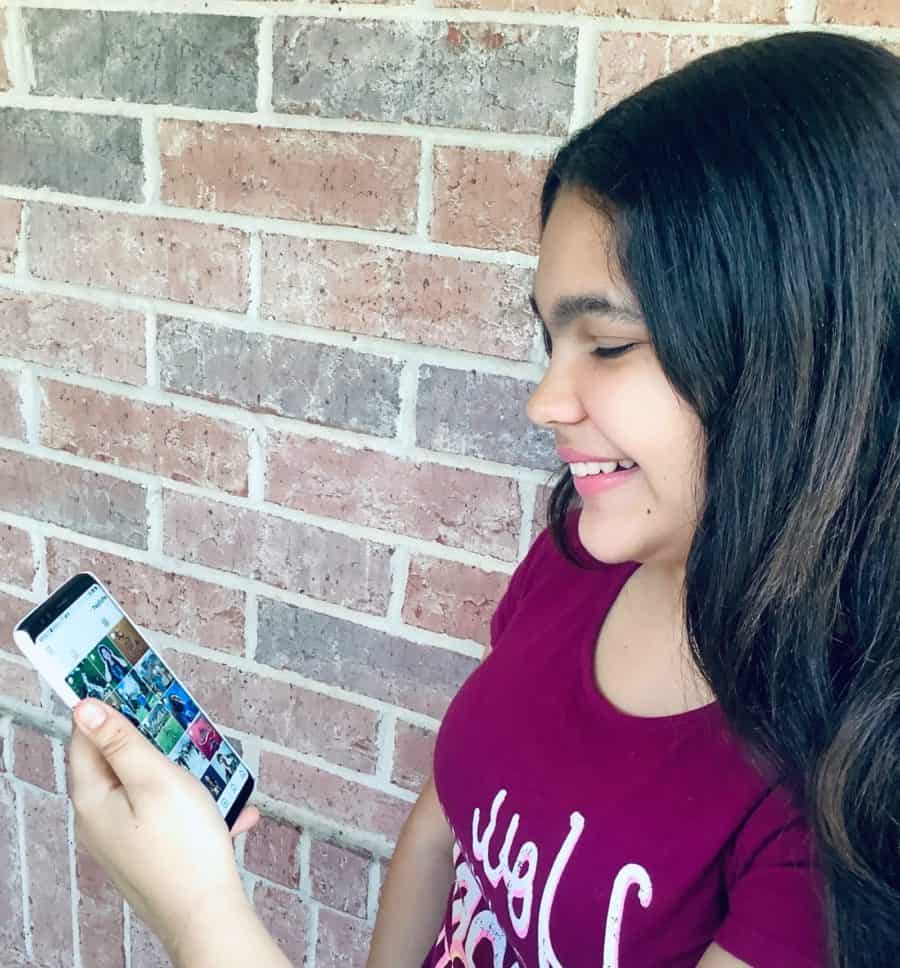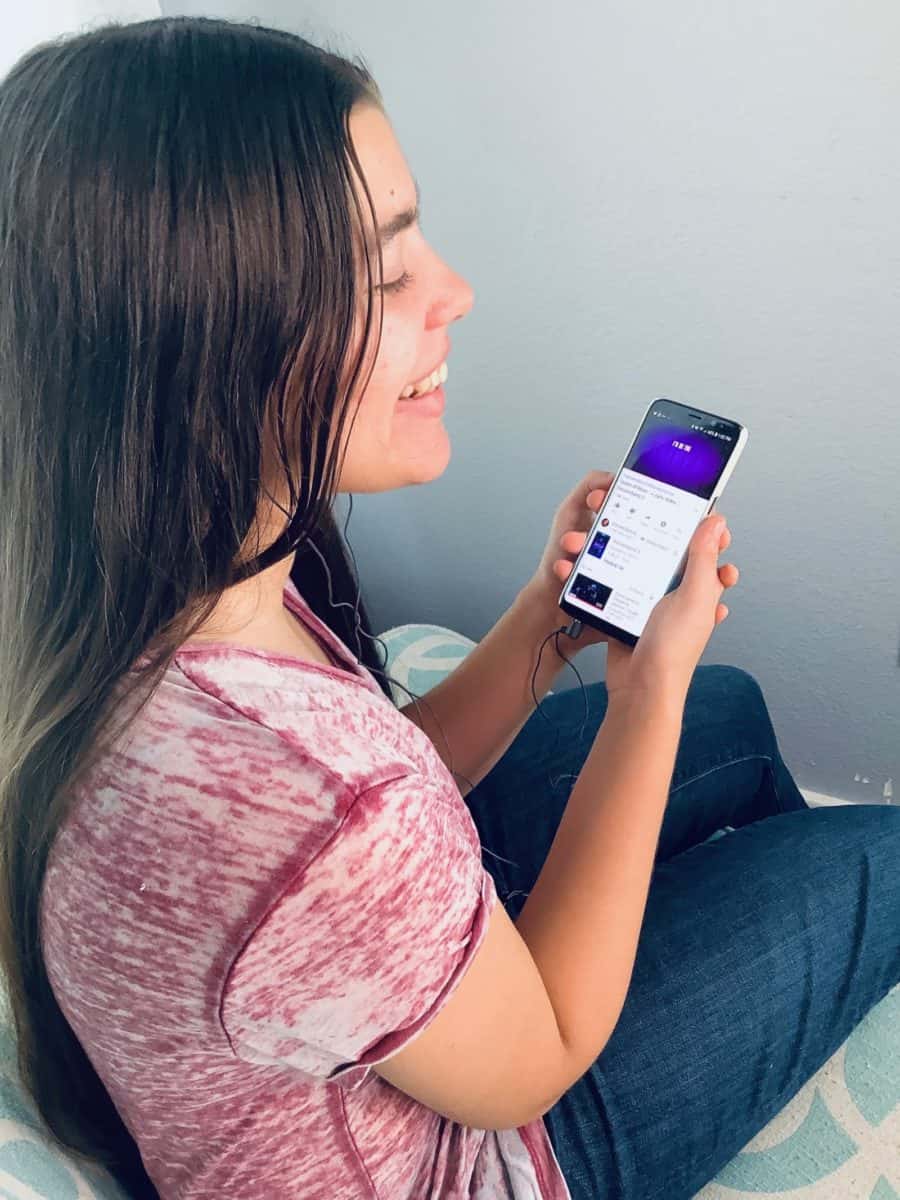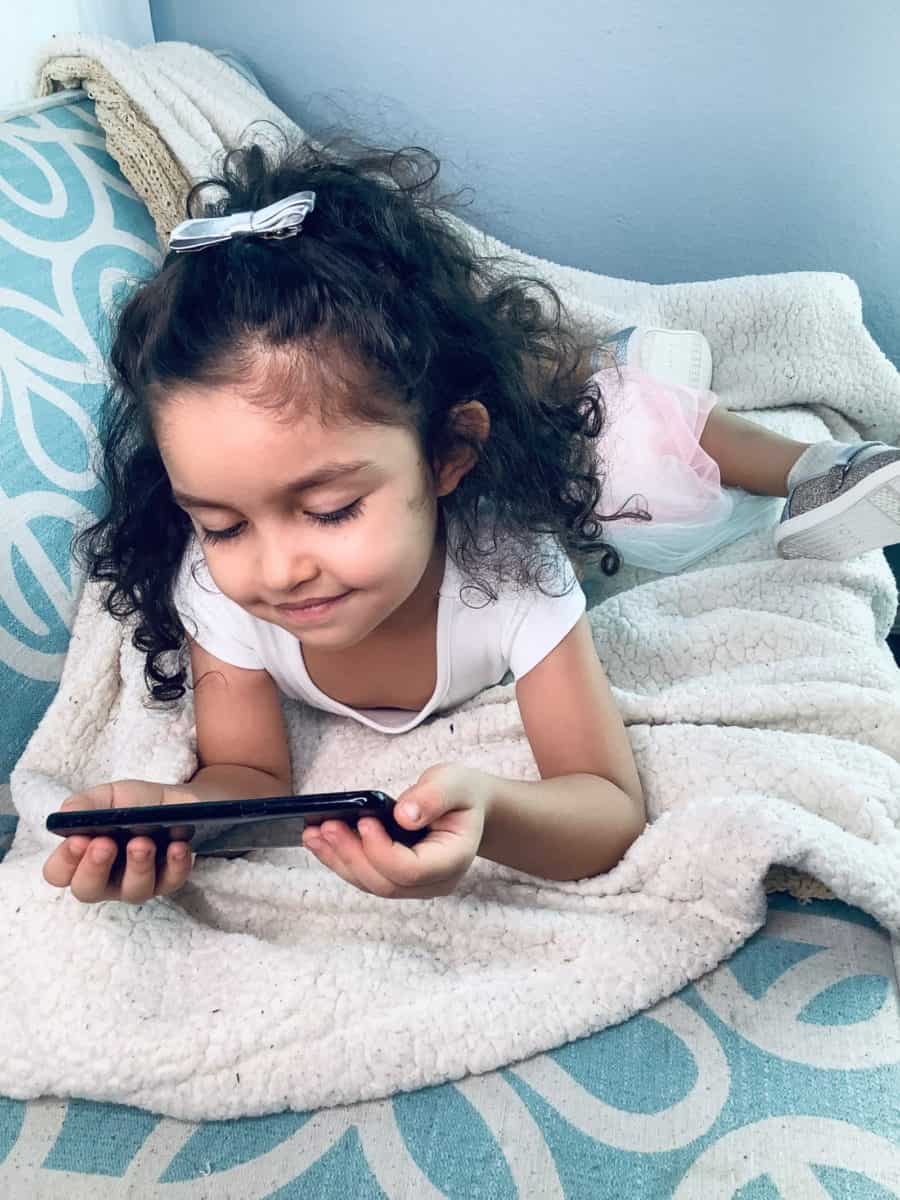![]()
I remember how excited I was when my dad brought home a 10” black and white TV and installed the antenna so we could get two channels. It was so fascinating that I had to write a note below my homework so my teacher would be aware of this milestone!
We never had a phone at home – not even one of those old fashioned rotary dial ones you hung on the wall, but I got to use one at work when I had my first job at twelve years old. I was the receptionist for a political party my dad helped organize in our province – that was a big deal!

No one really taught me how to use these two devices I had access to, so during my tween and teen years, I didn’t act with the most maturity and made some decisions I’m not proud of.
I watched a lot of telenovelas and programming that would probably be rated R and I would refuse to watch now, and I used to make prank calls when I was bored, saying things that I consider mean now.
My dad has always loved technology so as he started growing his business, he would invest in new cool “toys” to play his music, movies, and shows. Because I’m a daddy’s girl, I have become an early adopter of all things digital.
After living in the city for 3 years, I finally got settled into my first apartment. I was 18 years old and I had a well-paying job that allowed me to get things I wanted. I bought a DiscMan, a cool CD player for the house, a cordless phone, a VCR, and a color TV – and they were all the same brand, too!
I started getting into computers and learning how they worked. I started taking classes on Lotus 123, D’Base, and DOS and soon I was learning about the digital world. That year, I also got my first beeper, which was sadly stolen from me. I remember having this out of body experience and thinking: “How dare you steal my pager while I’m unconscious and dying?”
It didn’t take long for me to get my first cell phone. As someone who loves to connect with others, this was a dream come true. You had limited minutes, but I was grateful for every single one of them. Then we discovered the online messengers, e-mail, and ICQ – what a ride!
It’s almost insane to me that only a couple of decades later, kids, tweens, and teens have access to so much technology. There are so many devices available that we never imagined would even exist and the content possibilities are endless.

The digital world is a place where people of all ages can explore, learn, create, and share, however, kids need guidance to help them navigate it.
As moms, we are always striving to protect our children from potential threats. We’re always looking for ways to ensure the safety and privacy of our family, and sometimes it may seem tempting to shelter our children so that they are not at risk.
Keeping our children away from technology would be like never letting your child play hopscotch or tag, or ride a bike because they may end up falling and getting hurt.
Kids are curious and they love to experiment, push limits, and discover new things, so rather than preventing them from these opportunities, we can encourage them to learn sound skills, form healthy habits, and use effective tools that will help them be safer and make wiser decisions.
There is such a thing as being TOO cautious with kids. Kids need to experience life, so instead of fear, bring awareness!
In addition, in today’s digital era, it’s almost impossible to avoid technology. My daughters use their laptops to do both school and their passion work, so screen time probably looks very different than in other households.
Some parents have told me I’m too strict and overprotective because my daughters are 15 and 16 and they’ve never had a phone. Other parents have openly criticized me for being too permissive because Elisha and Elyssa were 5 and 6 when I bought them their first laptop. They have been YouTube creators and active on social media ever since those tender years, and Eliana started her YouTube channel at 5-years-old, as well.
We all do what we feel is best for our families and we are all seeking for ways to make sure our kids have a healthier online experience in which they get to enjoy the positive benefits of technology, while staying safer and becoming responsible digital citizens.

UNICEF Executive Director Anthony Lake put it this way: “In a digital world, our dual challenge is how to mitigate the harms while maximizing the benefits of the internet for every child.”
Thinking of the alarming content there is online, the irreversible damages that can occur, the destructive practices that our kids may fall into, and the dangerous people they can encounter can be nerve-wracking and bring panic, anxiety, and fear to any parent.
5 Ways To Guide Your Kids To Be Safer In The Digital World
Whether you are thinking about giving your child their own tablet, gaming console, or smartphone, it is necessary to provide them with guidance, to encourage balance, and to foster a healthy relationship with technology. Here are some ways you can do that:
![]() Be Open ~ The foundation of ensuring digital safety is open and ongoing conversations about what it means to be online and to use technology. Listening to our kids is imperative, especially since they are often more skilled and knowledgeable in this area than most parents.
Be Open ~ The foundation of ensuring digital safety is open and ongoing conversations about what it means to be online and to use technology. Listening to our kids is imperative, especially since they are often more skilled and knowledgeable in this area than most parents.
When we take the time to learn from them, to discuss our beliefs, our hopes, and concerns, we have more of a chance to influence their online behavior and their social interactions online.
Technology has always been a big part of my life and my daughters have been raised in this environment, so we started this conversation quite early and we’ve been just reinforcing and expanding on the same topics and lessons we’ve discussed over the years.
I am most passionate about kindness, compassion, and positivity online, whether they are creators or consumers.
![]() Be Involved ~ I am an involved parent and I like it. I am the one to sit and read a book and make the silly voices, to go down the slide, and to sit and watch the animated features with them, so naturally, when our idea of screen time began to expand, I’ve also been a part of their experience.
Be Involved ~ I am an involved parent and I like it. I am the one to sit and read a book and make the silly voices, to go down the slide, and to sit and watch the animated features with them, so naturally, when our idea of screen time began to expand, I’ve also been a part of their experience.
We use all our devices together, discuss what we learned, identify what is or isn’t appropriate, and have serious discussions about the challenges that we all encounter online.
I believe that technology can be an empowering tool for children, but it’s not meant to be used as a sitter or a teacher or to provide a break from parenting.
![]() Be Clear ~ I have learned that as my daughters grow and get more access to technology, there is more room for conflict, frustration, and overwhelm in my home – all things I dread and I’m sure you do, too.
Be Clear ~ I have learned that as my daughters grow and get more access to technology, there is more room for conflict, frustration, and overwhelm in my home – all things I dread and I’m sure you do, too.
One way I have found to help with screen time management and content management is to set clear boundaries and clear expectations.
Healthy Digital Boundaries
Healthy boundaries could be set around what devices are allowed, where these devices can be used, how long device is allowed, who can download apps and set passwords, and what content is appropriate.
To settle what screen time should look like so it doesn’t affect grades, sleep, or brain development, let’s examine The American Academy of Pediatrics recommendations for children’s media use:
- For children under 18 months, avoid screen-based media except video chatting.
- For children 18 months to 24 months, parents should choose high-quality programming and watch with their children.
- For children 2 to 5, limit screen time to one hour per day of high-quality programming.
- For children 6 and up, establish consistent limits on the time spent using media and the types of media.
A fantastic FREE tool I found to help manage the technology in our homes to set content and screen time controls is the Family Link app, a tool to help parents manage the kinds of content their kids see, the amount of time kids are spending on their devices, and give them a jump-off point to have a conversation around what a healthy relationship with technology looks like for their family.

My children know that the use of electronics in our home is a privilege, not a right, and therefore, it is monitored. Google offers a host of ways to help parents manage screen time and what their kids can access/view on their devices via Family Link, and all can be tailored to our family experience, needs, and lifestyle.
Healthy Digital Expectations
We do have a contract to set digital grounds in our family and you can use your judgment and your family’s input to set yours, but these principles can get you started:
![]() Protect yourself. What is private does not belong in public. What is personal is only shared with those you know, rely on, and trust. Children need to understand the why behind the rules.
Protect yourself. What is private does not belong in public. What is personal is only shared with those you know, rely on, and trust. Children need to understand the why behind the rules.
When I teach digital marketing to mompreneurs, I always say “the Virtual World is just like the Real World…MAGNIFIED” and this applies for kids’ safety too!
We’ve had raw conversations about cyberbullying, exposure to morally offensive content, gaming addiction, abuse, exploitation, trafficking, predators, and the consequences of not safeguarding your identity online. It’s not fun, but someone’s gotta do it, and not only the only parent around here, I’m also not a fan of “because I said so.”
![]() THINK before you text, post on social media, and interact with others. Is it True, Helpful, Inspiring , Necessary, and Kind? As Philippians 4:8 would put it:
THINK before you text, post on social media, and interact with others. Is it True, Helpful, Inspiring , Necessary, and Kind? As Philippians 4:8 would put it:
“… whatsoever things are true, whatsoever things are honest, whatsoever things are just, whatsoever things are pure, whatsoever things are lovely, whatsoever things are of good report; if there be any virtue, and if there be any praise, think on these things.”
There are many damaging trends that have been normalized and deemed harmless and even funny; however, if my children are following these guidelines, they will know for sure they’re on the right track.
![]() Respect yourself. You are what you post online (written, audio, and visual content), and your behavior and communication will affect your reputation. Do not be a bully and don’t put up with bullies!
Respect yourself. You are what you post online (written, audio, and visual content), and your behavior and communication will affect your reputation. Do not be a bully and don’t put up with bullies!
Digital boundaries and digital expectations are most effective when the family works together to establish what is realistic, respectful, and recommended according to the family situation.
![]() Be Connected ~ Parenting in the digital era required that you are connected, not only to your child, but to technology, to your child, to other parents, and to your child’s friends.
Be Connected ~ Parenting in the digital era required that you are connected, not only to your child, but to technology, to your child, to other parents, and to your child’s friends.
Children don’t just consume content at home, but at school, at a friend’s house, and they are consuming content that their friends are posting, whether without parental consent or supervision or because their parents have a different idea of what is acceptable.
It’s not enough to monitor online usage and set limits, but being familiar with what is going on in their world. Terms like POS (“parent over shoulder”) or NSFW (“not safe for work)” is necessary to provide guidance, while being respectful to your child and not too invasive of their privacy.
![]() Be An Example ~ We sometimes don’t provide enough guidance because we know it would be a double standard. It’s not enough to teach digital responsibility, but we gotta to model it, too.
Be An Example ~ We sometimes don’t provide enough guidance because we know it would be a double standard. It’s not enough to teach digital responsibility, but we gotta to model it, too.
I read somewhere that many kids feel they need to compete for attention with their parents’ devices and that’s really sad. We all need to nurture our real-life friendships and relationships and it starts with you.
I want my children to enjoy technology, to satisfy their desire to be creative, grow, and have wholesome fun, and I’m excited about online safety resources like the Family Link app.
All the limits in the world won’t matter unless you instill the belief that online safety is in their best interest. I can probably say that my most amazing realization as a mother has been that children are their own self and we are teachers and guides along their path of growth and development. Teaching them awareness and consciousness will help them make better choices NOW and in the future.
How do you guide your kids to be safer in the digital world? Share your online safety tips with us in the comment section below and keep the conversation going with #FamilyLink and tagging @GoogleForEdu.
[ela]

Heather
Friday 18th of October 2019
It's so important for our kids to feel confident with technology but also empowered to make safe decisions.
Debra
Thursday 17th of October 2019
We talk so much about digital safety with our kids! It is just so crazy what we invite in when we have the internet but in this day and age, you need it!
Courtney
Tuesday 15th of October 2019
Ooooo so much helpful info here!!! The internet can be the best and the worst thing ever for our kids!
Rosey
Monday 14th of October 2019
It is awesome that you are an early adapter of technology. I have started to be. It's fun.
Catherine Shane Cabuhat
Monday 14th of October 2019
Such great tips to everyone especially if we have kids so we can give them boundaries for them to be safe in the digital world. I found those tips so useful.